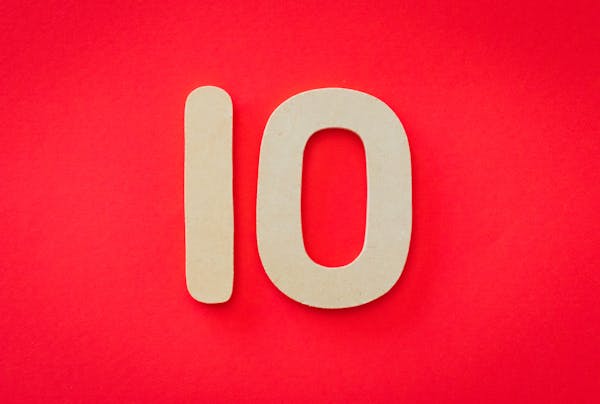There was just too much. After Dave Eggers published his 2013 Silicon Valley novel “The Circle,” he still had an untapped pile of notes and articles about the way new technologies were changing our culture. As life rolled on — four more novels; a “Circle” film adaptation starring Emma Watson and Tom Hanks; managing both indie publishing house McSweeney’s and the national tutoring network 826 — he continued to add to his stack of stories about technology’s excesses.
“I kept on noticing new developments in that realm that were both horrifying and comical,” he said. Both aspects drive his follow-up, the near-future, nearly 600-page tech satire “The Every,” out this week — only in independent bookstores.
Set a decade or so after “The Circle,” “The Every” follows a young woman who goes to work at the same Bay Area corporation. But where “Circle” protagonist Mae Holland wanted to be the best employee possible, Delaney Wells gets herself hired by the company — renamed the Every after a megamerger with an e-commerce site — with the intention of taking it down from the inside. The Every has grown to encompass all major search, social media and online shopping companies — think Facebook plus Google plus Amazon.
“I didn’t even want to put that word in,” Eggers said, explaining why Amazon is referred to only as “the Jungle.” The author’s aversion to Jeff Bezos’ everything store stems from the ways it has affected his art and his business — books and publishing. Even something seemingly simple, like releasing the hardcover of “The Every” only in independent bookstores, takes an extraordinary amount of effort.
“It’s incredibly complicated. You have to carve out a weird set-aside to do this kind of thing with a distributor,” Eggers said. “At the warehouse, they actually have to inspect each box going out to make sure it’s not somehow going to Amazon.”
I told him I don’t use Amazon and that products like Ring and Alexa give me nightmares. “I think that you’re in the minority,” Eggers said mildly. “The most enlightened and progressive and very aware folks that I know are still wholly participating in the aggregation of power among this handful of companies.”
“And you?” I asked. “What about you?”
“Oh, I don’t know,” he said. “Do I matter in this? Obviously I’m a strange case.”
We were speaking on the phone. On my end, that meant two iPhones, one for talking and the other for recording. Eggers, meanwhile, was on a flip phone. An old-school flip phone. He is somewhat notoriously tech-averse; he and his wife, the writer Vendela Vida, didn’t even have Wi-Fi at home until the family needed it during the pandemic.
So yes, he’s a strange case: a techno-skeptic who has written two big novels about how technology is transforming society. He’s not, however, a Luddite; he watches sports clips on YouTube, even though he knows the trackers are tracking, the algorithms cranking and the marketers profiling. McSweeney’s, which he founded, is known for making beautiful print books and also for a humor website, McSweeney’s Internet Tendency. Come November, “The Every” will be available in paperback everywhere — including Amazon. Eggers is both in and out.
To demonstrate, let him tell you a little story about QuarkXPress, the desktop publishing program. He used it to lay out “The Every” by himself:
“QuarkXPress is the layout program that I learned on in the ’90s. My copy of it is, I think, from 2005. … I love the way it made desktop publishing possible for me, for McSweeney’s — we wouldn’t exist without these tools. But I also don’t want to be tethered forever to this company and have to update the software at their whim and pay them a monthly fee. I really believe that if you pay for something, you should own it. That should be the end of the relationship. You shouldn’t be in a feudal relationship with this company forever.”
The laptop that houses his copy of Quark is from 2003. “That’s what I write on. It’s never been connected to the internet,” Eggers said. If it were connected, automatic updates would incur extra fees and possibly disable the software.
“The nature of this relationship is so weird,” he continued. “This need to control and surveil how you use their software and this unending relationship that you have to have with them — it’s like being with some controlling, obsessive boyfriend or girlfriend.” And in the same way, it can evolve gradually, insidiously. “I’m always interested in these small steps that we barely notice that take us from healthy relationships with technology to ever more control and surveillance.”
Sure, this little story is about software, but it’s also about how we accept and overlook the ways technology is remaking us. Eggers’ arm’s-length relationship with technological novelty gives him a level of insight most of us might not have.
And his careful eye on the ways people incrementally relinquish privacy, financial independence and choice is what powers “The Every.” The company’s worst intentions notwithstanding, it’s the users who welcome its ease and its innovations, overlooking the personal cost. Delaney’s method of subterfuge is to introduce bad ideas into the company, prompting them to launch products so terrible that they’ll make pushback inevitable. Of course no one would use an app that rated affection, using facial recognition and research on lying, to test their spouse — would they?
The Every — the company — isn’t terrible. Notably, it leverages its vastness to benefit the environment. But even this can be silly when taken to extremes: The corporation has concluded not only that single-use disposable dishes are bad but that washing tableware is just as destructive, so the entire campus subsists on finger foods. My favorite were drinking balls, piled up like canapés, that have to be consumed in a single awkward mouthful.
“They’re real,” Eggers told me. “Vendela and I were at a … sort of hippie literary arts festival. There was this little cart selling them. Instead of a glass, it was like a thin membrane made of the drink itself. I don’t know how they did it. I thought these would take over the world within months because they were so novel and weird and also had no waste to them. But I’ve never seen them since. I thought, of course they would be adopted at a place like this. Good intentions, but very uncomfortable outcomes.”
Eggers moved to San Francisco in 1992, in time to see it emerge as a center for technology paired with pie-in-the-sky idealism. “It changed,” he said. “What prompted ‘The Circle’ was seeing it turn from a bunch of sloppy, utopian digital goofballs to these evermore powerful monopolies that were profiting from our private lives.”
As we all know, the monopolies have only gotten more powerful in the time it took to write “The Every.” Eggers had to race to stay ahead of creepy technological advancements for this novel; the most significant way he changes our near-future is to seed it with that old tech utopianism.
Kellogg is a former books editor of The Times. She can be found on Twitter @paperhaus.
This story originally appeared in Los Angeles Times.






